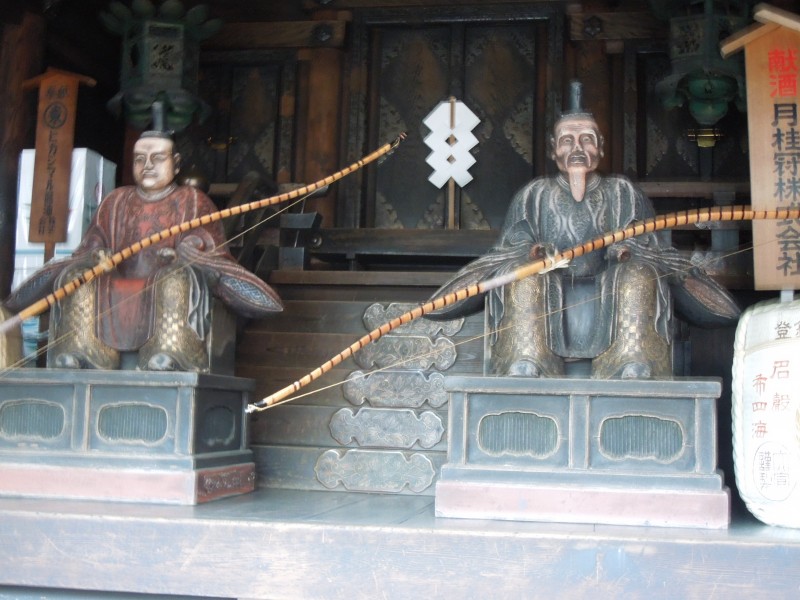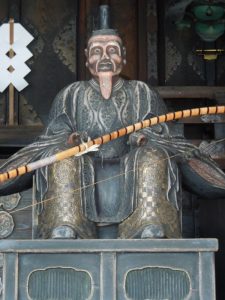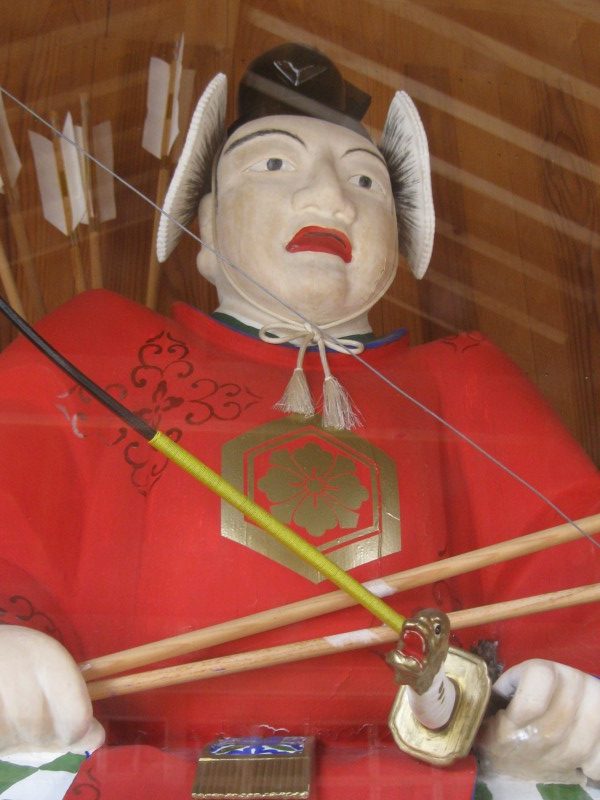 On his shrine outings around the Izumo province near Matsue, Hearn took note of the local folklore, often describing in great detail the history and customs of the area. It’s what made him, in some people’s opinion, one of the founding figures of Japanese folklore. Above all, he was a major influence on the most famous folklorist of them all, Yanagita Kunio. In the passage below, Hearn writes of the Zuijin figures who can sometimes be found at the entrance ways to shrines. (Here in Kyoto the most notable example are those at Yasaka Jinja in Gion, which in Edo times was a prime exemplar of syncretism.)
On his shrine outings around the Izumo province near Matsue, Hearn took note of the local folklore, often describing in great detail the history and customs of the area. It’s what made him, in some people’s opinion, one of the founding figures of Japanese folklore. Above all, he was a major influence on the most famous folklorist of them all, Yanagita Kunio. In the passage below, Hearn writes of the Zuijin figures who can sometimes be found at the entrance ways to shrines. (Here in Kyoto the most notable example are those at Yasaka Jinja in Gion, which in Edo times was a prime exemplar of syncretism.)
***********
On either side of the great gateway is a shrine compartment, inclosed by heavy wooden gratings on two sides; and in these compartments are two grim figures in complete armour, with bows in their hands and quivers of arrows upon their backs, –the Zuijin, or ghostly retainers of the gods, and guardians of the gate.

Before nearly all the Shinto temples of Izumo, except Kitzuki, these Zuijin keep grim watch. They are probably of Buddhist origin; but they have acquired a Shinto history and Shinto names. Originally, I am told, there was but one Zuijin-Kami, whose name was Toyo-kushi-iwa-mato-no-mikoto. But at a certain period both the god and his name were cut in two-perhaps for decorative purposes. And now he who sits upon the left is called Toyo-iwa- ma-to-no-mikoto; and his companion on the right, Kushi-iwa-ma- to-no-mikoto.
Before the gate, on the left side, there is a stone monument upon which is graven, in Chinese characters, a poem in Hokku, or verse of seventeen syllables, composed by Cho-un: Ko-ka-ra-shi-ya Ka-mi-no-mi-yu-ki-no Ya-ma-no-a-to. My companion translates the characters thus:-‘Where high heap the dead leaves, there is the holy place upon the hills, where dwell the gods.’
Near by are stone lanterns and stone lions, and another monument-a great five- cornered slab set up and chiselled-bearing the names in Chinese characters of the Ji-jin, or Earth-Gods-the Deities who protect the soil: Uga-no-mitama-no-mikoto (whose name signifies the August Spirit-of-Food), Ama- terasu-oho-mi-Kami, Ona-muji-no-Kami, Kaki- yasu-hime-no-Kami, Sukuna-hiko-na-no-Kami (who is the Scarecrow God).

